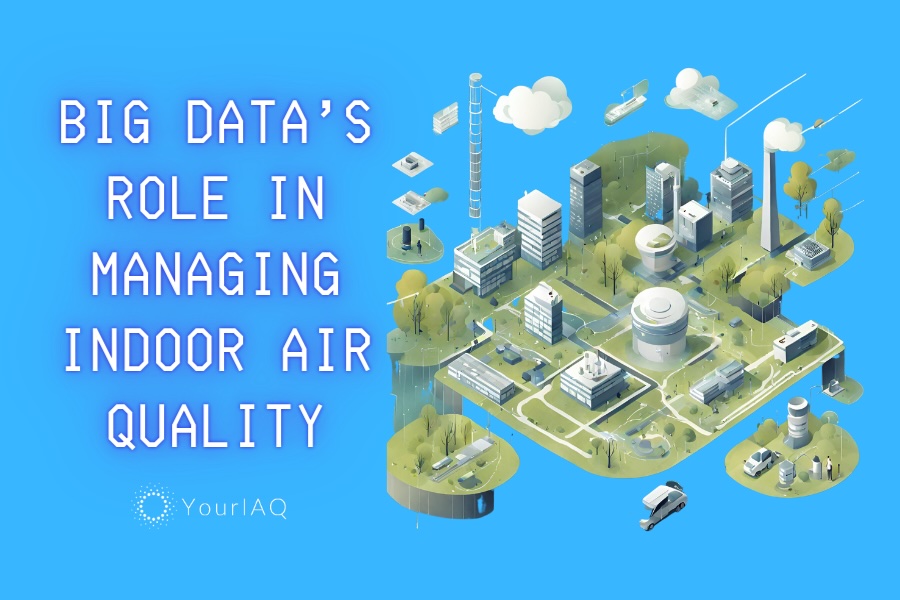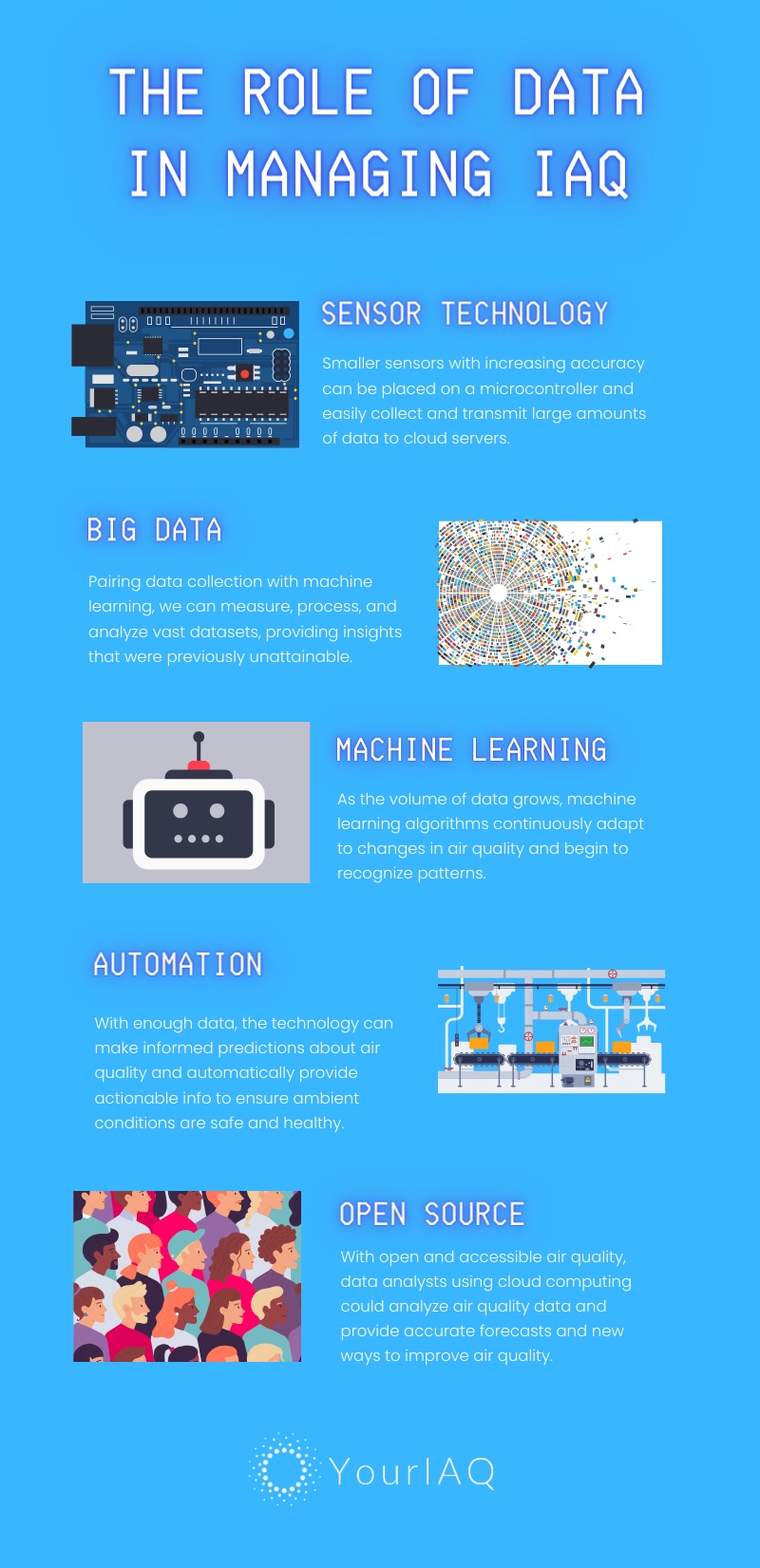
In today’s tech-savvy world, the importance of data in managing and measuring indoor air quality (IAQ) cannot be overstated. As we strive to understand our environment and the factors that influence it, one key to effective IAQ management lies in leveraging the power of data and automation. Let’s delve into the significance of data in understanding, predicting, and improving indoor air quality.
The Modern Intersection of Technology and IAQ
The role of technology in IAQ management is pivotal. For decades, experts have leaned on air quality monitors and sensor technology to collect information about what’s in our air. This input drives decisions about how to manage air quality.
Today, we have more processing power than ever before to collect and analyze large amounts of data rapidly. As sensor technology improves and sensors get smaller, it’s possible to connect an array of sensors to a microcontroller that logs data when plugged into a power outlet. The data, in turn, can be transmitted via wireless or cellular networks to the cloud, where it’s aggregated, analyzed, and stored.
With this technology, we can use data to measure and forecast future air quality conditions, enabling proactive measures. However, despite the increasing availability of these tools, their potential remains largely untapped.
One of the primary challenges hindering effective IAQ management is the fragmentation of data collection. Data silos, where information sits in isolated repositories, prevent a holistic view of air quality across different environments. Imagine the possibilities if more air quality data were open and accessible. Even a first-year data analyst, equipped with the free tier of cloud computing services like Amazon Web Services, could predict air quality trends months in advance.
Overcoming the Complexity of Air Quality Data
Managing air quality is not just about ensuring a comfortable living or working environment; it’s about safeguarding human health, preserving the environment, and fostering sustainable communities. To grasp the intricacies of air quality, one must consider a large number of variables. These include temperature, air pressure, humidity, and the presence and concentration of countless air particles, gases, and airborne pollutants. These factors are in a state of perpetual flux, changing from one moment to the next, even in small spaces.
This is where the tools of big data have a huge role to play. Pairing data collection with machine learning, we can measure, process, and analyze vast datasets, providing insights that were previously unattainable. As the volume of data grows, machine learning algorithms continuously adapt to changes and begin to recognize patterns.
With enough data, this technology can make informed predictions about how air quality will change and provide actionable recommendations to ensure ambient conditions are safe and healthy. Over time, the system automatically gets “smarter,” ensuring that IAQ management strategies remain relevant and effective.
The Path Forward
The message is clear: for effective IAQ management, a data-driven approach is essential. The tools and technologies are already at our disposal, waiting for us to harness their full potential. By breaking down data silos and promoting open access to air quality data—both indoor and outdoor—we can empower individuals and organizations to make more informed decisions. This not only enhances the quality of indoor environments but also contributes to broader sustainability and health goals.
As we navigate new challenges in the 21st century, the role of data in managing indoor air quality will only become more pronounced. By embracing a data-centric approach and leveraging the power of technology, we can ensure healthier, more sustainable indoor spaces for all.







